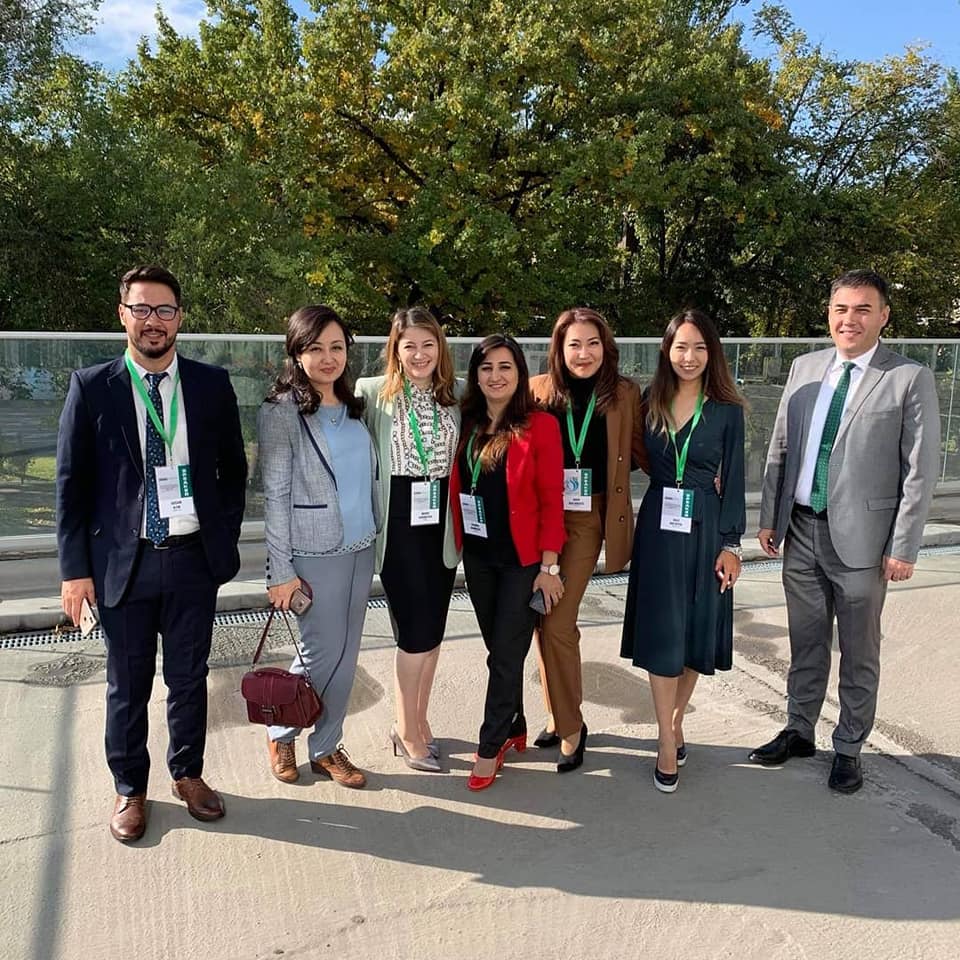
The opening ceremony of the 12th Central Asian Leadership Programme on Environment for Sustainable Development took place virtually on September 20, 2021 due to the current situation amid COVID-19 pandemic.
The Leadership Programme 2021 is hosted by the Regional Environmental Centre for Central Asia (CAREC) in cooperation with the European Union SWITCH-ASIA Programme, the OSCE Programme Office in Nur-Sultan, the Office of the Co-ordinator of OSCE Economic and Environmental Activities, the EU Delegations in Kazakhstan and Central Asia, and the World Bank. Along with CAREC, the Kazakh-German University (DKU) is a co-partner in this project.
The sessions of the first day were attended by Mr. Zafar Makhmudov, Executive Director, CAREC; Dr. Volker Frobarth, Ambassador, Head of the OSCE Programme Office in Nur-Sultan; Mr. Johannes Stenbaek Madsen, Head of the Cooperation Section at the European Union (EU) Delegation in Nur-Sultan; Dr. Zinaida Fadeeva, Team Leader, SCP Facility SWITCH-Asia Programme; Ms. Aidai Kurmanova, Head of the United Nations Environment Programme (UNEP) for Central Asia Office as well as Ms. Meirgul Alpysbayeva, Education National Professional Officer at UNESCO Almaty Cluster Office.
The 12th CALP agenda included issues related to the implementation of the Sustainable Development Goals (SDGs) in the context of sustainable consumption and production, circular/green economy, water and energy resources management and their significant impact on food supply and security, ecosystem services, transition towards a low-carbon, resource-efficient and circular economy. The impact of the COVID-19 pandemic on the development of Central Asia and Afghanistan has been discussed in terms of economic recovery and new challenges faced by healthcare and education systems.
In his welcoming speech, Mr. Zafar Makhmudov, CAREC Executive Director expressed his gratitude to all the partners for their support and noted that CALP is the only regular capacity-building and training programme in Central Asia, that has become a recognized platform for the development of youth regional cooperation.
«Over 11 years more than 330 young people from five countries of Central Asia and Afghanistan, representatives of state environmental, water management and energy sectors, non-governmental organizations, universities and environmental businesses, have been trained within Central Asia Leadership Programme».
In addition, he highlighted significant contributions made by CALP alumni to the advancement of regional cooperation in various sectors throughout the region.
This year, the Leadership Program brought together 38 participants – representatives of
state bodies, green business, civil society organizations of Central Asia and Afghanistan working in the field of SCP, green economy, resource efficient economy and circular economy.
The main objectives of the 12th CALP are to strengthen capacity of young people and increasing the role of youth in promoting of SCP and green economy; raise awareness and promote implementation of the SCP policies at national and regional level as well as to build capacity for collective leadership.
Mr. Johannes Madsen, the Head of the Cooperation Section at the EU Delegation in Nur-Sultan expressed readiness to share their best practices and approaches to the implementation of SDG 2030 and pointed out the following 5 priority areas of cooperation between the EU and Central Asia: green economy, digitalization, green jobs, migration partnership, and security.
The coronavirus crises has vividly demonstrated the connection between unsustainable human activities and the loss of biodiversity, leading to the spread of new deseases and viruses. Governments should exploit all the opportunities offered by moving from a linear to a circular economy and making our production and consumption models more sustainable. Many good practices in this area has been developed by the EU funded SWITCH Asia programme, which could serve as an inspiration for the countries of Central Asia to ensure a real switch to sustainable development in practical terms».
________________________________________________________________________________________________________________________________________________________
Reference: The Regional Environmental Centre for Central Asia (CAREC) is a regional organization with a mission to assist the governments of Central Asian countries, local and international partners in addressing environmental protection and sustainable development issues in the region of Central Asia and Afghanistan.
CAREC was established in 2001 by the governments of five Central Asian countries - the Republic of Kazakhstan, the Kyrgyz Republic, the Republic of Tajikistan, Turkmenistan, the Republic of Uzbekistan, as well as the European Union and UNDP. The CAREC headquarter is located in Almaty, Republic of Kazakhstan, and country offices successfully operate in the capitals of the five Central Asian states and in Afghanistan.
SWITCH-Asia is the largest sustainable consumption and production (SCP) programme supported by the European Union across Asia. In line with the priorities of the European Green Deal, the programme aims to promote sustainable and inclusive growth in Asia, and to support partner countries in their transition towards a low-carbon, resource-efficient and circular economy.
